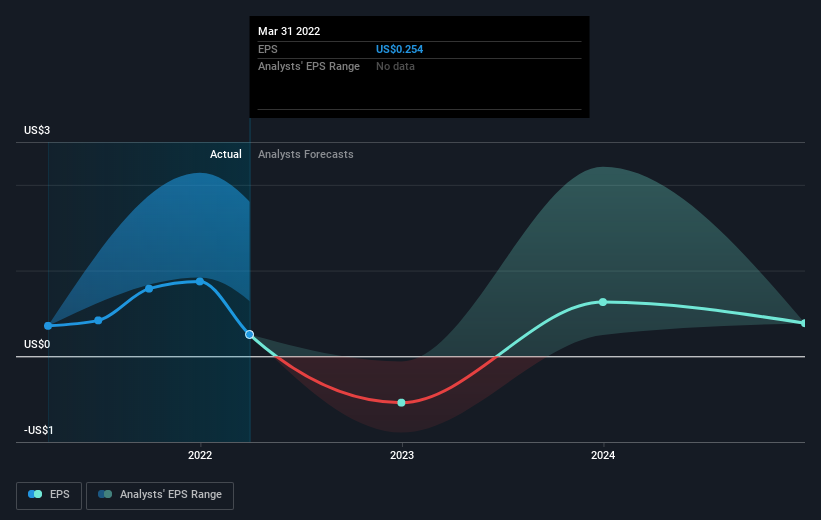loanDepot (NYSE:LDI) investors are sitting on a loss of 88% if they invested a year ago
The art and science of stock market investing requires a tolerance for losing money on some of the shares you buy. But it's not unreasonable to try to avoid truly shocking capital losses. We wouldn't blame loanDepot, Inc. (NYSE:LDI) shareholders if they were still in shock after the stock dropped like a lead balloon, down 89% in just one year. That'd be enough to make even the strongest stomachs churn. We wouldn't rush to judgement on loanDepot because we don't have a long term history to look at. Shareholders have had an even rougher run lately, with the share price down 64% in the last 90 days. We really hope anyone holding through that price crash has a diversified portfolio. Even when you lose money, you don't have to lose the lesson.
So let's have a look and see if the longer term performance of the company has been in line with the underlying business' progress.
See our latest analysis for loanDepot
In his essay The Superinvestors of Graham-and-Doddsville Warren Buffett described how share prices do not always rationally reflect the value of a business. One flawed but reasonable way to assess how sentiment around a company has changed is to compare the earnings per share (EPS) with the share price.
Unhappily, loanDepot had to report a 28% decline in EPS over the last year. This reduction in EPS is not as bad as the 89% share price fall. Unsurprisingly, given the lack of EPS growth, the market seems to be more cautious about the stock. The less favorable sentiment is reflected in its current P/E ratio of 6.90.
The company's earnings per share (over time) is depicted in the image below (click to see the exact numbers).
It's good to see that there was some significant insider buying in the last three months. That's a positive. That said, we think earnings and revenue growth trends are even more important factors to consider. Dive deeper into the earnings by checking this interactive graph of loanDepot's earnings, revenue and cash flow.
A Different Perspective
We doubt loanDepot shareholders are happy with the loss of 88% over twelve months (even including dividends). That falls short of the market, which lost 17%. That's disappointing, but it's worth keeping in mind that the market-wide selling wouldn't have helped. With the stock down 64% over the last three months, the market doesn't seem to believe that the company has solved all its problems. Given the relatively short history of this stock, we'd remain pretty wary until we see some strong business performance. It's always interesting to track share price performance over the longer term. But to understand loanDepot better, we need to consider many other factors. Consider for instance, the ever-present spectre of investment risk. We've identified 2 warning signs with loanDepot , and understanding them should be part of your investment process.
loanDepot is not the only stock that insiders are buying. For those who like to find winning investments this free list of growing companies with recent insider purchasing, could be just the ticket.
Please note, the market returns quoted in this article reflect the market weighted average returns of stocks that currently trade on US exchanges.
Have feedback on this article? Concerned about the content? Get in touch with us directly. Alternatively, email editorial-team (at) simplywallst.com.
This article by Simply Wall St is general in nature. We provide commentary based on historical data and analyst forecasts only using an unbiased methodology and our articles are not intended to be financial advice. It does not constitute a recommendation to buy or sell any stock, and does not take account of your objectives, or your financial situation. We aim to bring you long-term focused analysis driven by fundamental data. Note that our analysis may not factor in the latest price-sensitive company announcements or qualitative material. Simply Wall St has no position in any stocks mentioned.

 Yahoo Finance
Yahoo Finance 
